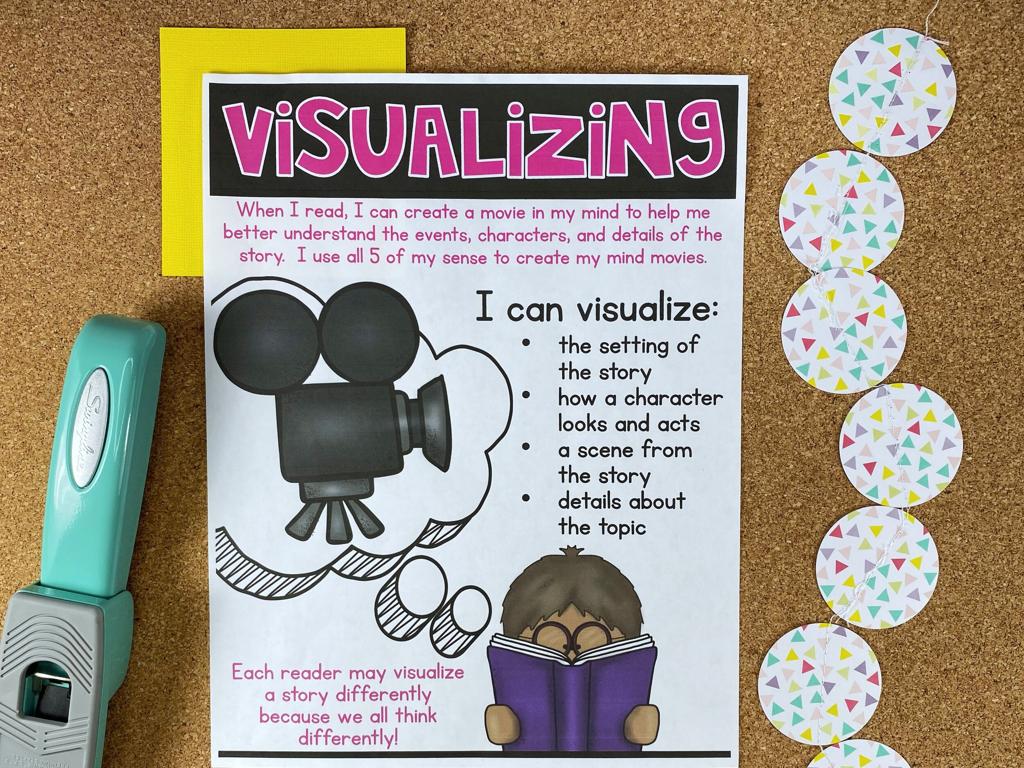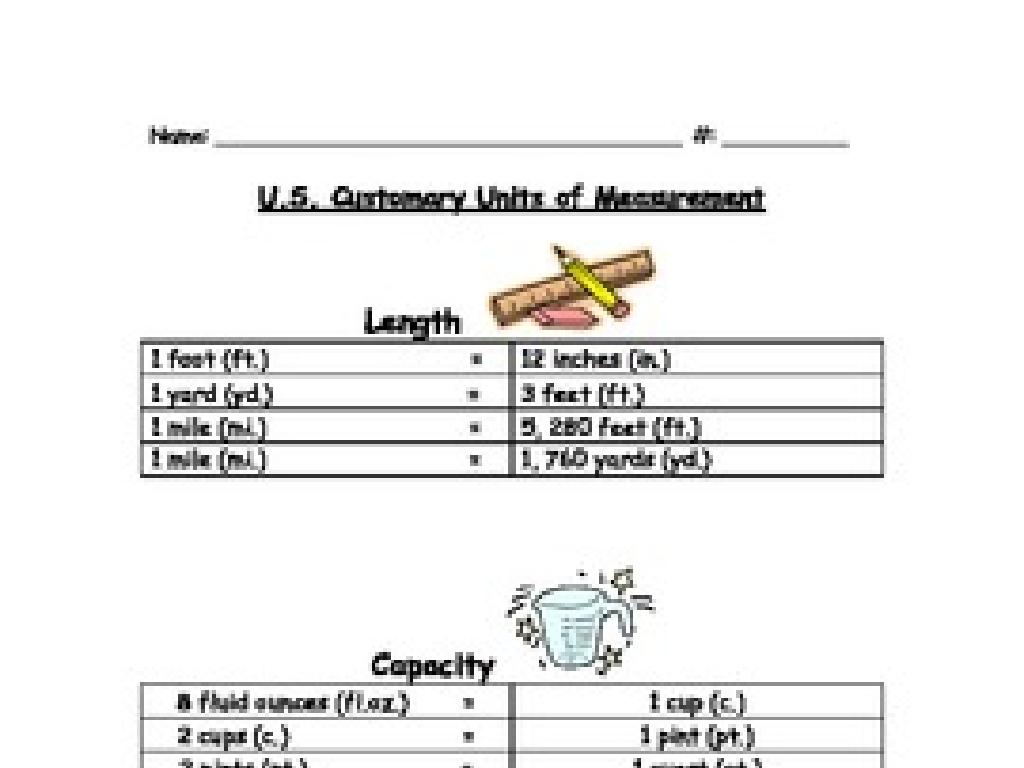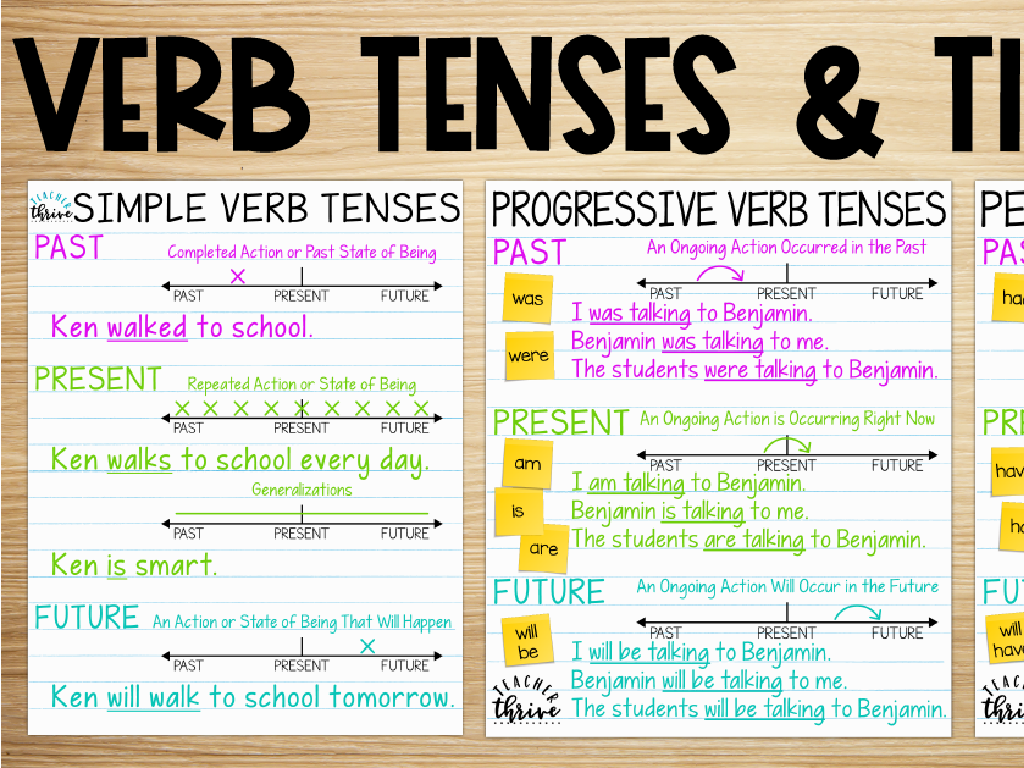Words With Mis-
Subject: Language arts
Grade: Fifth grade
Topic: Prefixes And Suffixes
Please LOG IN to download the presentation. Access is available to registered users only.
View More Content
Exploring ‘mis-‘: A Prefix Adventure
– ‘mis-‘ means wrong or badly
– Prefixes are word building blocks
– Prefixes come before the root of the word and change its meaning
– ‘mis-‘ alters a word’s meaning
– Adding ‘mis-‘ can show error or incorrect action
– Examples: ‘misplace’, ‘misjudge’
– ‘Misplace’ means to put in the wrong place, ‘misjudge’ means to judge wrongly
|
This slide introduces the concept of prefixes, with a focus on ‘mis-‘. Explain that ‘mis-‘ is a prefix that changes the meaning of a word to indicate a wrong or incorrect action or judgment. Emphasize that understanding prefixes like ‘mis-‘ can help students deduce the meaning of unfamiliar words. Provide examples such as ‘misplace’ (to put something in the wrong place) and ‘misjudge’ (to form a wrong opinion or conclusion about someone or something). Encourage students to think of other words with the prefix ‘mis-‘ and discuss how the prefix alters their meanings. This will help students expand their vocabulary and improve their decoding skills.
Exploring Prefixes: The Power of ‘mis-‘
– What is a prefix?
– A prefix is a word part added to the beginning of a base word to change its meaning.
– Common prefixes we see
– ‘un-‘, ‘re-‘, and ‘pre-‘ are some we use often.
– ‘mis-‘ changes meanings
– ‘mis-‘ means wrong or badly, like in ‘misunderstand’.
– Examples with ‘mis-‘
– ‘Misplace’ means to put in the wrong place, ‘mismatch’ means things don’t go together.
|
This slide introduces the concept of prefixes, with a focus on the prefix ‘mis-‘. Begin by explaining that a prefix is a group of letters placed before the root of a word to alter its meaning. Provide common examples of prefixes to illustrate how they are used in everyday language. Then, delve into the prefix ‘mis-‘, explaining that it implies a negative alteration of the base word, often suggesting an incorrect action or judgment. Offer examples like ‘misplace’ and ‘mismatch’ to show how ‘mis-‘ changes the meaning of the base words ‘place’ and ‘match’. Encourage students to think of other words with the prefix ‘mis-‘ and discuss the new meanings these words convey.
Understanding the Prefix ‘mis-‘
– ‘mis-‘ indicates error or wrong
– ‘mis-‘ changes meaning of words
– Example: ‘misplace’ means to lose
– To put something in the wrong place
– Example: ‘misjudge’ means to judge incorrectly
– To form a wrong opinion or conclusion about someone or something
|
The prefix ‘mis-‘ is a common English prefix that, when added to the beginning of a word, changes the meaning to indicate a wrong action or a bad interpretation. For example, ‘misplace’ means to put something in the wrong place, and ‘misjudge’ means to form an incorrect opinion or conclusion. Other examples like ‘misunderstand’ mean to interpret something incorrectly. It’s important for students to recognize how prefixes like ‘mis-‘ can entirely change the meaning of a word and to be able to identify and understand these changes in the context of sentences they read. Encourage students to think of other words with the prefix ‘mis-‘ and discuss the new meanings these words take on.
Word Building with ‘mis-‘ Prefix
– Understanding ‘mis-‘ prefix
– ‘mis-‘ means wrong or badly, like in ‘misplace’ (place wrongly).
– Activity: Find the root word
– Look at ‘misjudge’. What’s the root word? Hint: Think of a courtroom.
– Combine ‘mis-‘ with roots
– Add ‘mis-‘ to ‘lead’ to get ‘mislead’, which means to lead someone wrongly.
– Discover new word meanings
– How does ‘mis-‘ change words like ‘inform’ or ‘read’? Let’s explore!
|
This slide introduces the concept of the prefix ‘mis-‘ and its effect on root words to create new words with altered meanings. Start by explaining that ‘mis-‘ often indicates an incorrect action or a negative connotation. During the activity, guide students to identify the root word from examples provided. Then, have them practice combining ‘mis-‘ with identified root words to form new words and understand the new meanings that emerge. Encourage students to think of additional examples and discuss how ‘mis-‘ changes the meaning of each new word. This activity will enhance their vocabulary and comprehension of how prefixes affect word meaning.
Mastering ‘mis-‘ Prefix in Words
– Correct usage of ‘mis-‘ words
– ‘mis-‘ means wrong or badly, like in ‘misplace’
– Construct sentences with ‘mis-‘
– ‘I misplaced my book’ shows ‘mis-‘ indicating a mistake
– Contextual understanding of ‘mis-‘
– Words with ‘mis-‘ often suggest errors; context reveals meaning
– Examples and non-examples
– ‘Misjudge’ is correct, ‘misfunny’ is not a word
|
This slide aims to teach students about the prefix ‘mis-‘ and how it alters the meaning of words to indicate a wrong or incorrect action or judgment. Start by explaining the definition of ‘mis-‘ and then show how it’s used in sentences. Emphasize the importance of context in understanding words with ‘mis-‘. Provide clear examples of words that correctly use the ‘mis-‘ prefix, such as ‘misunderstand’ or ‘misplace’, and contrast them with non-examples to clarify misconceptions. Encourage students to come up with their own examples and to use context clues to determine the meaning of ‘mis-‘ words they encounter in their reading.
Class Activity: ‘Mis-‘ Adventure
– Group story creation with ‘mis-‘ words
– Each group presents their story
– Class votes on creative ‘mis-‘ usage
– Reflect on the use of ‘mis-‘ in stories
– Discuss how ‘mis-‘ changed the meanings of words in your stories.
|
This activity is designed to help students understand and apply the prefix ‘mis-‘ in a fun and interactive way. Divide the class into small groups and have each group create a short story that includes words starting with the prefix ‘mis-‘, such as ‘misplace’, ‘misunderstand’, or ‘mismatch’. After the groups have written their stories, each group will present their story to the class. Following the presentations, the class will vote on which story used ‘mis-‘ words most creatively. This activity not only reinforces the concept of prefixes but also encourages teamwork, creativity, and public speaking. As a teacher, facilitate the activity by providing guidance and ensuring each student participates. After the activity, lead a discussion on how the prefix ‘mis-‘ altered the meanings of the base words and how it affected their stories.
Review and Reflection: The Power of ‘mis-‘
– Recap ‘mis-‘ words we learned
– Review words like ‘misplace’, ‘misunderstand’, and ‘mismatch’.
– Why are prefixes important?
– Prefixes change the meaning of words, making new words.
– Quick Quiz: Find ‘mis-‘ words
– Look at sentences and spot the ‘mis-‘ words.
– Share what ‘mis-‘ means to you
|
This slide aims to consolidate the students’ understanding of the prefix ‘mis-‘ and its impact on word meaning. Begin with a recap of the words learned in the lesson, such as ‘misplace’ (to put in the wrong place), ‘misunderstand’ (to understand incorrectly), and ‘mismatch’ (to match wrongly). Discuss the role of prefixes in altering the meaning of base words and how they can help in decoding the meaning of new words. Conduct a quick interactive quiz where students identify words with the ‘mis-‘ prefix in given sentences. Encourage students to reflect on what they’ve learned and share their thoughts on how the prefix ‘mis-‘ changes word meanings. This reflection helps reinforce their learning and demonstrates the practical use of prefixes in everyday language.
Homework: Exploring ‘mis-‘ Words
– Write 10 sentences with ‘mis-‘ words
– Use words like ‘misplace’ or ‘misjudge’
– Illustrate one of your ‘mis-‘ sentences
– Draw a picture to show the meaning of one ‘mis-‘ word
– Share your sentences next class
– Be ready to read your sentences to the class
|
This homework assignment encourages students to engage with the prefix ‘mis-‘ which often indicates a wrong or incorrect action, such as in ‘misunderstand’ or ‘mislead’. Students should create 10 original sentences using different words that start with ‘mis-‘. They are also asked to choose one sentence and create an illustration that represents the meaning of the ‘mis-‘ word in that context. This will help them to visualize and remember the words better. In the next class, students will have the opportunity to share their work, enhancing their speaking skills and reinforcing their understanding of the ‘mis-‘ prefix. Provide examples like ‘misplace’ meaning to put in the wrong place, or ‘misjudge’ meaning to form a wrong opinion. This activity will help students recognize and understand the usage of ‘mis-‘ in various contexts.






